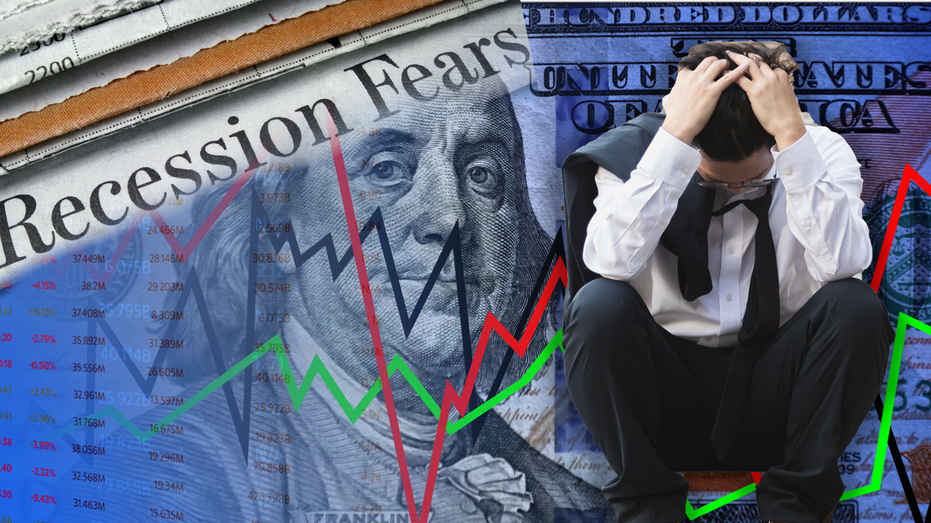World in early stages of ‘very significant’ recession: Economist Nancy Lazar
Lazar also predicts 'lower inflation is coming'
Economist Nancy Lazar on expectations for a global recession
The Piper Sandler chief global economist warns the world is in the early stages of a 'very significant' recession.
Piper Sandler chief global economist Nancy Lazar warned on Monday that the world is in the early stages of a "very significant" and "synchronized" recession.
In an appearance on "Mornings with Maria" Monday, Lazar noted that a recession is expected outside of the United States.
"It’s going to be a global recession pulling down [the] Euro zone in particular," she told host Maria Bartiromo. "It looks like China GDP [Gross domestic product] in the second quarter could also be negative."
"Now we think the United States could not go into a recession. We have still plus 1% GDP for the U.S. this year, but that’s still a very significant slowdown from roughly 6% last year to one," she continued, noting that 1% GDP growth "will feel very, very weak."
FED JAWBONING TO BLAME FOR MARKET SELLOFF: FITZ-GERALD
U.S. economic growth was revised slightly higher in the final months of 2021, helping the nation record its best year for growth in nearly four decades before the highly contagious omicron variant of the coronavirus dampened consumer spending and further strained the global supply chain.

Economist Nancy Lazar warns that the world is in the early stages of a "very significant" and "synchronized" recession. (iStock)
Gross domestic product, the broadest measure of goods and services produced across the economy, grew by 7% on an annualized basis in the fourth quarter, the Commerce Department said in its second reading of the data in February. The economy grew at an annual revised rate of 2.3% in the third quarter.
Lazar noted that the U.S. faced "a similar situation back in 2015" and that there were "fears of a recession" in 2016.
"You didn’t get it, in part because the backbone of the United States is pretty healthy, which we still think is the case," she told Bartiromo.
"But, nonetheless, outside of the United States, indeed you do get a recession, led by the Euro zone given what’s going on with oil prices and global interest rates."
| Ticker | Security | Last | Change | Change % |
|---|---|---|---|---|
| BNO | UNITED STATES BRENT OIL FUND - USD ACC | 32.52 | +0.50 | +1.56% |
| USO | UNITED STATES OIL FUND - USD ACC | 78.02 | +1.03 | +1.34% |
Oil prices fell on Monday, with U.S. crude slipping below the $100 per barrel level.
Oil prices have fallen back on expectations of weaker demand after peaking above $130 per barrel last month due to anxiety about the disruption of supplies from Russia, the world's No. 2 exporter.
Meantimes, Wall Street is betting the Federal Reserve will raise interest rates at the steepest pace in over two decades as policymakers look to tame red-hot inflation.
Traders are already pricing in a 100% chance of a half-point rate increase during the Fed's May meeting, in addition to at least three more 50-basis point hikes at the U.S. central bank's subsequent meetings in June, July and September, according to the CME Group, which tracks trading.
Market expert guarantees recession in early 2023
Sarge986 president Stephen Guilfoyle and Fitz-Gerald Group principal Keith Fitz-Gerald react to the Fed's hawkish inflation position on 'The Claman Countdown.'
By September, traders expect the federal funds target range to be at least 2.25% to 2.5%, well above the current range of 0.25% to 0.50%.
In March, inflation accelerated to a new four-decade high as supply chain constraints, the Russian war in Ukraine and strong consumer demand fueled rapid price gains that wiped out the benefits of rising wages for most Americans.
AS GAS PRICES SOAR, EVS OUT OF REACH
The Labor Department said earlier this month that the consumer price index (CPI) – which measures a bevy of goods including gasoline, health care, groceries and rents – rose 8.5% in March from a year ago, the fastest pace since December 1981, when inflation hit 8.9%. Prices jumped 1.2% in the one-month period from February, the largest month-to-month jump since 2005.
Price increases were widespread: Energy prices rose a stunning 11% in March from the previous month, and are up 32% from last year. Gasoline, on average, costs 48% more than it did last year after rising 18.3% in March on a monthly basis as the Russian war in Ukraine fueled a rapid increase in oil prices.
Lazar predicted on Monday that "lower inflation is coming."
Recession expected outside the US: Nancy Lazar
Piper Sandler chief global economist Nancy Lazar argues 'we are at the early stages of a very significant, synchronized global recession.'
"I think we are going to have significant goods deflation," she told Bartiromo, pointing to the price of used cars as an example.
GET FOX BUSINESS ON THE GO BY CLICKING HERE
"We’ve seen used cars decline 6% just in a few months," Lazar said, noting that she expects prices to drop even more and that the fall in prices will spread between industries.
Lazar also pointed out the positive and negative impact of deflation.
"On the one hand that’s positive in that you are going to send, obviously, the CPI significantly lower over the next year; but on the other hand, it’s not going to be pretty in that it’s going to affect company earnings, through lower earnings via weaker demand for products and also declining prices," she explained.
CLICK HERE TO READ MORE ON FOX BUSINESS
FOX Business’ Megan Henney contributed to this report.























